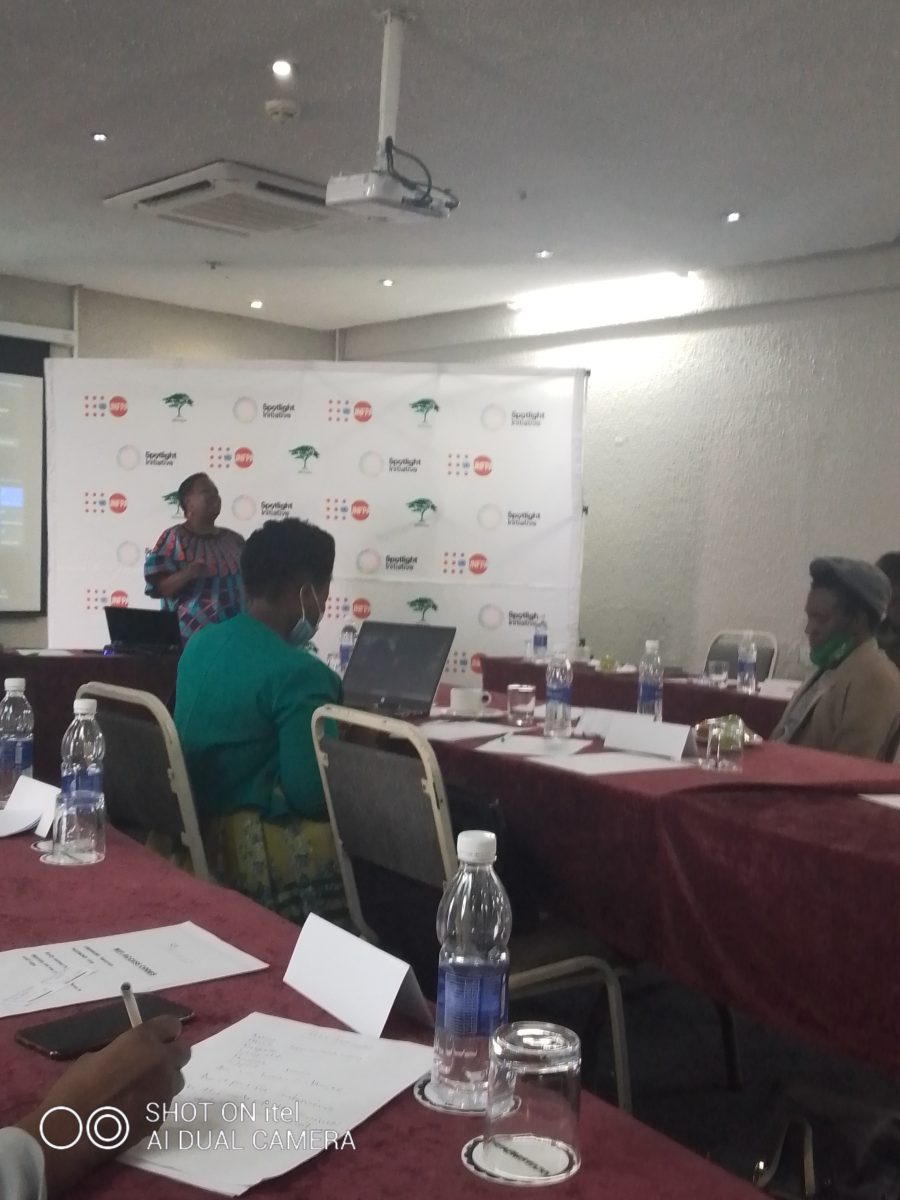In an effort to address Gender Based Violence (GBV) and facilitating social transformation with the intention of combating GBV, the Musasa Project spearheaded a training workshop of media professionals on GBV, human rights and social inclusion aimed at assisting journalists to report fair, accurate and balanced gender sensitive stories.
Members of the media fraternity were urged to build gender awareness and sensitivity in all reporting requirements.
Facilitating the workshop on the 14th of December 2020 in Harare, the Chief Executive Officer of the Zimbabwe Gender Commission (ZGC), Mrs Virginia Muwanigwa said insensitive or biased reporting on gender issues within GBV was leading to perpetuation of the problems through harmful gender stereotypes.
She told journalists from different media houses that when it comes to representation, coverage should give fair and space to women and men’s voice.
“As media, you have a lot of power in you. Your coverage when it comes to GBV should reflect a holistic and realistic view of women and men and how do they appear in the spectrum of activities in which they engage. It is important for you to ensure that in whatever you are doing or reporting, you are not violating the victim’s rights,” she said.
She went to tackle on the issues of portrayal, context as well as GBV framework and checklist as she pointed out that journalists ought to read broadly so as to have more, juicy and correct information when underlying GBV related articles.
Verification and authentication of sources, she said, was crucial to every journalist as well recognising gender as a specialised beat.
“There should be adequate context and balance when it comes to these issues. Your articles should be analytical and should go beyond the event and raise underlying issues. Make sure that when you disseminate information about GBV, there is a specialist civil society organisation and ensure that the source has been consulted.
“Gender beat should be accorded the same skills as other beats such as courts, political and financial among others. It is also important for gender beat to be understood to include both women and men’s voices.”
Members of the media were also told that when reporting on GBV issues, it is important to respect privacy of victims, protect sources as well as desist from paying for interviews.
Speaking on the sidelines of the workshop, Rotina Musara, the Advocacy and Communication Officer of the Musasa Project urged the media to give a voice to survivors of gender-based violence.
“Journalists should ensure that comments of survivors of gender-based violence are not absent from the stories. They should also avoid providing the real names of the survivors. This ensures that the media will not exacerbate the damage inflicted on survivors. The media amplifies the voices against the perpetration of GBV, thereby shaping positive attitudes and beliefs towards the eradication of the menace,” Musara said.
When developing gender sensitive stories, journalists were also urged to treat subjects with dignity, consider angles, target audience and follow up among other important aspects.
The workshop was centered within the framework of action for a broader audience and the strengthening of acquired capacities in gender equality, human rights and social inclusion issues.
Accordingly, this relates to the international legal instruments of promotion and protection of Women’s Rights such as the Convention on the Elimination of all forms of Discrimination against Women and the optional protocol relating to it, the Protocol to the African Charter on Human Rights and People’s Rights on the Rights of Women in Africa as well as the UN Security Council 1325 1 820 Resolutions.
Musasa is a Non-Governmental Organisation founded in 1988 and it is driven by the mandate to advocate peace building and provision of Direct Services to survivors of GBV.
